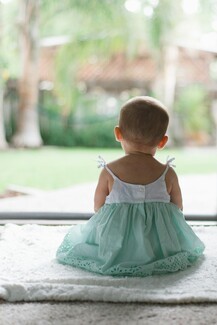Navigating the Maze - Kinship care

The Hardships Faced by Gypsy, Roma, and Traveller Children in the Care System and the Promise of Kinship and Community-Based Care – by Claire Rice
In the labyrinthine landscape of the care system, Gypsy, Roma, and Traveller children find themselves navigating treacherous terrain fraught with challenges and obstacles. From the moment they enter this complex maze, they are confronted with hardships that test their resilience and shake their sense of well-being to its core.
For many of these children, the journey begins with a tumultuous upheaval—the wrenching separation from their families and communities. Due to circumstances beyond their control, they are thrust into a world that is foreign and unfamiliar, severed from the cultural roots that have sustained them for generations.

As they navigate the twists and turns of the care system, Gypsy, Roma, and Traveller children often encounter a myriad of barriers that threaten to derail their path to well-being. Language barriers, cultural insensitivity, and lack of representation all serve to exacerbate their sense of isolation and alienation, leaving them feeling adrift in a sea of bureaucracy and indifference.
Moreover, the dearth of culturally competent care options further compounds their struggles. Too often, these children find themselves placed in environments that fail to recognise or respect their cultural identity, leaving them feeling like strangers in their own skin. The loss of connection to their language, heritage, and traditions takes a toll on their mental and emotional well-being, leaving scars that may never fully heal.

But amidst the darkness, there are glimmers of hope—stories of resilience, strength, and determination that shine brightly amidst the shadows. Gypsy, Roma, and Traveller children possess an innate resilience born of generations of adversity. They draw upon this inner strength to navigate the storms that rage around them, refusing to be defined by their circumstances.
Yet, they should not have to navigate this journey alone.
An alternative, however, shines a beacon of promise amidst the storm: kinship and community-based care. This model, rooted in the values of family and community, offers a lifeline to Gypsy, Roma, and Traveller children, providing them with the love, stability, and cultural connection they need to thrive. Placing children with extended family members or within their own communities ensures that they remain connected to their language, heritage, and traditions, fostering a sense of belonging that is essential for their well-being.

It is incumbent upon us as a society to embrace this alternative, to prioritise kinship and community-based care options that honour and celebrate the cultural identity of Gypsy, Roma, and Traveller children. Let us stand together in solidarity, with compassion and empathy, as we work to create a brighter, more inclusive future for all. Their well-being depends on it.
By Claire Rice
(Lead photo by Picsea on Unsplash. All images are stock photographs)
Petition - Community campaigners have set up a petition for you to sign to ask the government to implement kinship care
Help protect Gypsy, Roma, and Traveller families by signing our petition to support the well-being of their children. Gypsy Traveller children deserve to grow up in their own communities, surrounded by their culture and loved ones.
These children are sometimes placed in care without a full understanding of their unique way of life. Your signature can help us advocate for fair treatment and ensure that these children stay where they belong – with their families. Stand with us in defending their rights and preserving their cultural heritage.
Our children face unique challenges and often need more understanding and cultural sensitivity. By signing our petition, you can help ensure they receive the proper care, respect, and opportunities to thrive. Stand with us in advocating for justice and equality. Your support can make a significant difference.
Please click on this link and sign today and be a voice for our children: